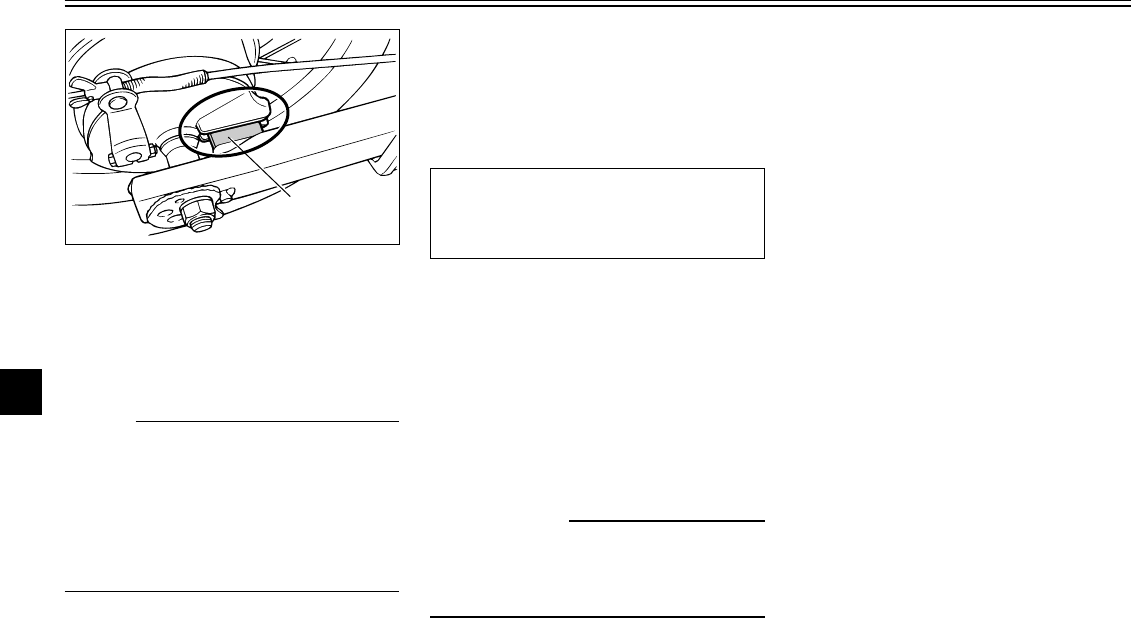
6-43
PERIODIC MAINTENANCE AND MINOR REPAIR
1
2
3
4
5
6
7
8
9
3. Install the axle nut, and then
lower the rear wheel so that it is
on the ground.
4. Tighten the axle nut to the speci-
fied torque.
5. Install the brake rod onto the
brake camshaft lever, and then
install the brake pedal free play
adjusting nut onto the brake rod.
6. Adjust the brake pedal free play.
(See page 6-23 for brake pedal
free play adjustment proce-
dures.)
EW000103
w
After adjusting the brake pedal
free play, check the operation of
the brake light.
Tightening torque:
Axle nut:
90 Nm (9.0 m·kgf, 65 ft·lb)
EAU01008
Troubleshooting
Although Yamaha motorcycles
receive a thorough inspection before
shipment from the factory, trouble
may occur during operation. Any
problem in the fuel, compression, or
ignition systems, for example, can
cause poor starting and loss of
power.
The following troubleshooting chart
represents a quick and easy proce-
dure for checking these vital systems
yourself. However, should your
motorcycle require any repair, take it
to a Yamaha dealer, whose skilled
technicians have the necessary tools,
experience, and know-how to service
the motorcycle properly.
Use only genuine Yamaha replace-
ment parts. Imitation parts may look
like Yamaha parts, but they are often
inferior, have a shorter service life
and can lead to expensive repair
bills.
1
EAU03520
To install the rear wheel
1. Insert the wheel axle from the
left-hand side.
NOTE:
Make sure that the drive chain adjust-
ing plates are installed with the
punched sides facing to the outside
and that the slot in the brake shoe
plate fits over the retainer on the
swingarm.
2. Install the drive chain onto the
rear sprocket, and then adjust
the drive chain slack. (See page
6-28 for drive chain slack adjust-
ment procedures.)
1. Retainer
5FY-9-14 (TW200, USA) 5/11/01 8:31 AM Page 82


















